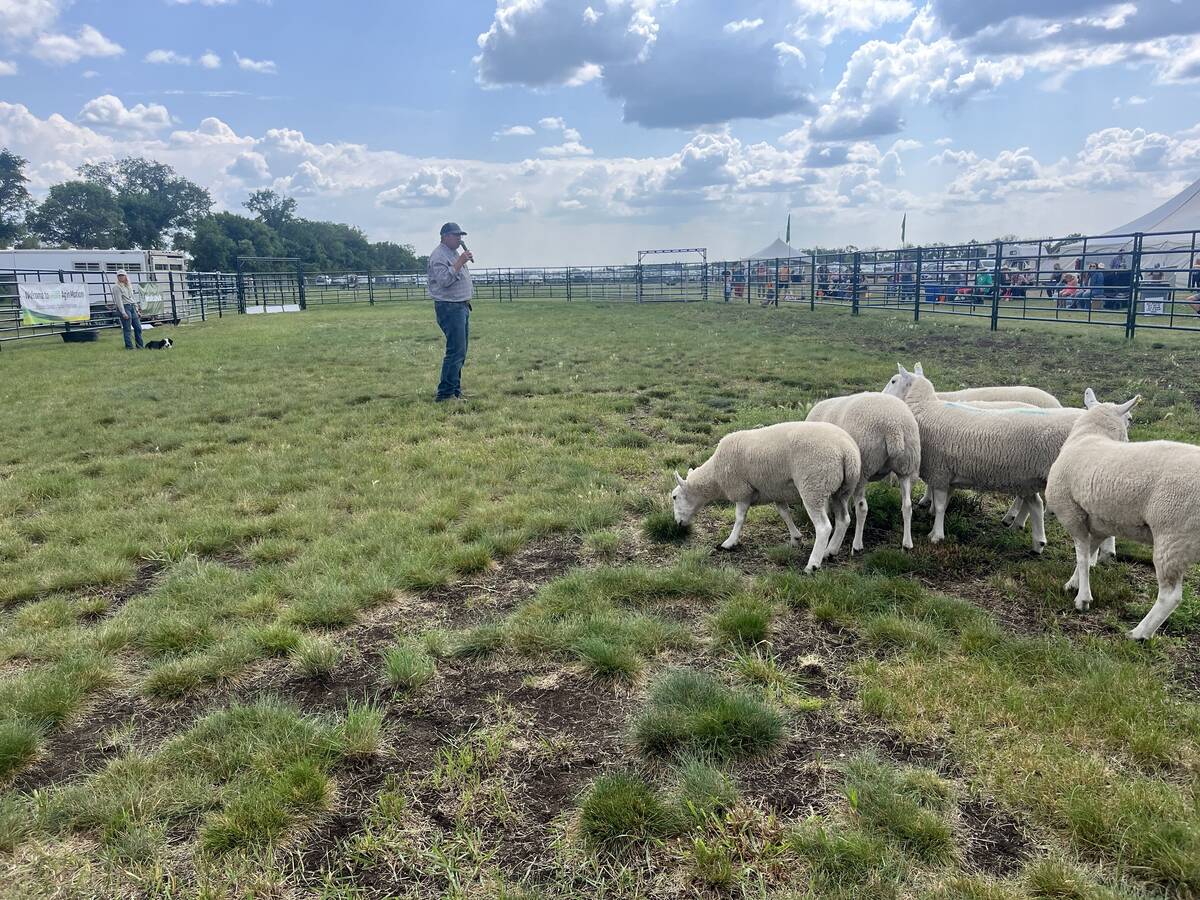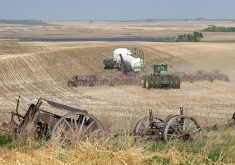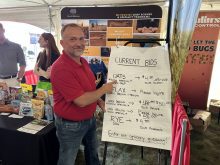Comments from provincial politicians last week about building a firewall to keep western beef out of Eastern Canada quickly grew into a political storm and a fast retreat.
It started when Quebec Liberal premier Jean Charest used a visit by Prince Edward Island premier Pat Binns to complain that Quebec’s cattle industry should not be closed down because a case of bovine spongiform encephalopathy had been found in Alberta.
“We should examine a way of having a more regional approach to these situations,” said Charest. “Quite frankly, here in Quebec we feel we should not have been impacted by the ban. There was no reason to believe there was a problem here.”
Read Also

Stock dogs show off herding skills at Ag in Motion
Stock dogs draw a crowd at Ag in Motion. Border collies and other herding breeds are well known for the work they do on the farm.
Binns agreed that a regional approach to disease control should be considered that would allow animals from uninfected regions of the country to be eligible for export.
Ontario agriculture minister Helen Johns took the idea to a meeting of provincial cattle industry officials May 29, publicly musing that blocking Alberta beef from moving into Ontario might be a way to convince foreign customers that Ontario beef is safe. Then, the reaction started.
Alberta agriculture minister Shirley McClellan said she had been “blind-sided” by the comments from Johns. “Everybody should understand that this is a Canadian issue, not an Alberta issue.”
In Ottawa, federal officials said regionalization or zoning would not work with BSE because it is not transmitted between cows but comes primarily from contaminated feed. Each year, both cattle and feed travel from the Prairies to Eastern and Atlantic provinces, making it impossible to guarantee a BSE-free zone.
The cattle industry also dismissed the idea as impractical and wrong-headed.
The Ontario Cattlemen’s Association said May 30 zoning would have “absolutely no impact on disease containment” and would not persuade foreign markets to open.
“It’s unfortunate that a bad option made it into the press,” said Ontario Federation of Agriculture president Ron Bonnett.
“Because there is so much on the line, we need to look at all options, many of which are ruled out immediately.”
By May 30, Ontario premier Ernie Eves said Johns had apologized for her musing and Alberta premier Ralph Klein accepted the apology.
















